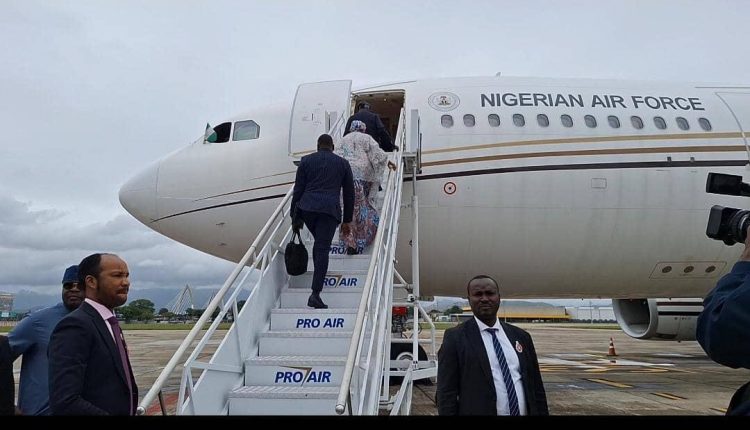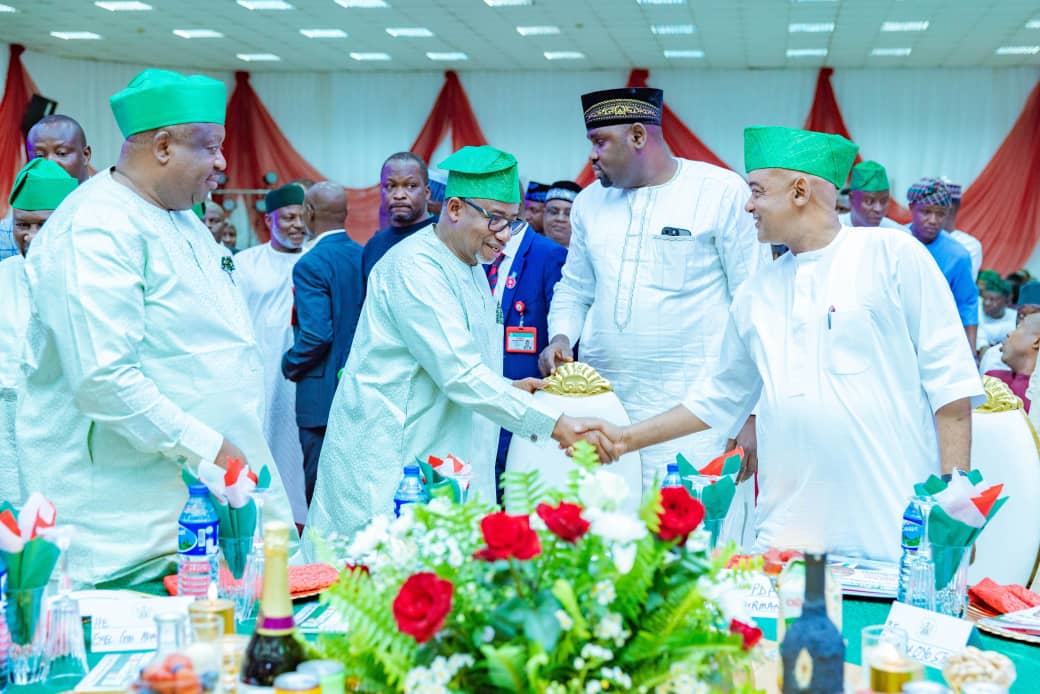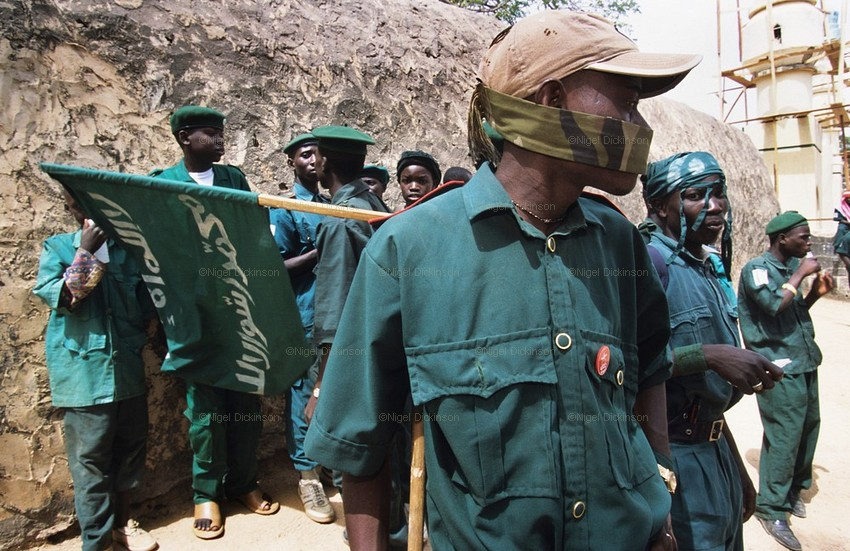The Nigeria Extractive Industries Transparency Initiative (NEITI) and the Global Rights, a rights advocacy group, have called for legal protection and skills empowerment for mining host communities in the country.
Speaking at a two-day workshop held on Monday in Karu, Karu Local Government Area, Nasarawa State, the Executive Director of Global Rights, Abiodun Baiyewu, decried the environmental degradation, health risks, and socio-economic hardships faced by communities dependent on mining.
She said issues are exacerbated by the lack of adequate legal protection for these communities.
“Mining activities often lead to land degradation, pollution, and threats to cultural heritage, yet many mining communities lack the necessary tools to safeguard their rights,” Mrs Baiyewu said.
“Empowering these communities to advocate for stronger governance will help mitigate these negative impacts and foster sustainable development.”
The workshop, organised in collaboration with NEITI and the House of Representatives Committee on Solid Minerals, aimed to equip participants from the Karu/Keffi/Kokona Federal Constituency with essential skills to defend their land, heritage, and livelihoods against the harmful effects of mining operations.
Mrs Baiyewu called for both government authorities and mining companies to collaborate on initiatives that empower host communities.
Nigerians need credible journalism. Help us report it.
Support journalism driven by facts, created by Nigerians for Nigerians. Our thorough, researched reporting relies on the support of readers like you.
Help us maintain free and accessible news for all with a small donation.
Every contribution guarantees that we can keep delivering important stories —no paywalls, just quality journalism.
With stronger legal protections, she argued, these communities would be better equipped to advocate for policies prioritising environmental sustainability and responsible mining practices.
She also stressed the importance of preserving traditional knowledge in environmental stewardship, warning that the environmental costs of mining should not come at the expense of the communities’ health and well-being.
“Strengthening these communities will allow them to advocate for practices that balance economic benefits with environmental protection,” she added.
In addition to environmental safeguards, Mrs Baiyewu said there was the need for economic resilience in mining communities.
By providing training for alternative livelihoods and improving management of mining revenues, she believed these communities can reduce their dependency on mining, fostering greater self-reliance and stability.
 NEITI Executive Secretary, Orji Orji
NEITI Executive Secretary, Orji OrjiCall for collaboration on sustainable practices
Meanwhile, the Chairman of the House Committee on Solid Minerals, Gaza Gbefwi, supported the need for community-centered mining practices.
He said sustainable mining should prioritise the welfare of local communities while contributing to national economic growth.
“Nasarawa State is rich in mineral resources, but responsible mining practices are essential for sustainable development,” Mr Gbefwi said.
“It’s critical that all stakeholders—government, mining companies, and host communities—work together to ensure transparency and environmental protection.”
The training also covered key tools for community engagement, including Free, Prior, and Informed Consent (FPIC), Environmental Impact Assessments (EIA), and Community Development Agreements (CDA). Gbefwi stressed that these tools are essential for communities to participate meaningfully in decisions that affect their land and livelihoods.
“Our traditional leaders play a crucial role in fostering collaboration and ensuring that community needs are addressed,” Gbefwi noted. “By engaging in dialogue with mining companies and government officials, they can advocate for practices that benefit both the state and the communities.”
 Program Manager, Global Rights, Edosa Oviawe
Program Manager, Global Rights, Edosa OviaweNEITI’s roles
The Executive Secretary of NEITI, Orji Orji, acknowledged the mining sector’s economic contributions—accounting for N1.66 trillion of Nigeria’s GDP in 2022.
But he warned of the potential environmental dangers if mining is poorly regulated.
“Mining offers significant economic opportunities, but if not properly managed, it can cause lasting environmental harm,” Mr Orji said. “There is a substantial gap between policy and practice when it comes to regulating the environmental impacts of mining.”
“We must create platforms for dialogue and action,” Mr Orji said. “Equipping communities with the right tools will help us build a future where socio-economic development and environmental protection go hand in hand.”
Tackling illegal mining
Illegal mining remains a significant challenge, particularly in states like Kaduna, Kebbi, and Nasarawa, where up to 80 percent of mining activities operate outside the formal regulatory framework.
This unregulated activity is linked to severe environmental damage, including water pollution and deforestation, and often fuels illegal trade and trafficking.
Traditional leaders from Karu, Yankpa, Agbada and Keffi expressed optimism that the training would enhance their ability to negotiate more effectively with both mining operators and government officials.
They reiterated the importance of involving local communities in every stage of the mining process—from planning to monitoring—to ensure the sector’s sustainable development.
As the first day of the workshop concluded, Global Rights and NEITI stressed the urgency of transparent governance in the mining sector.
Without genuine community involvement and regulatory reforms, they warned, Nigeria’s mining industry risks further ethical and environmental crises that could undermine its potential for long-term growth.
Support PREMIUM TIMES' journalism of integrity and credibility
At Premium Times, we firmly believe in the importance of high-quality journalism. Recognizing that not everyone can afford costly news subscriptions, we are dedicated to delivering meticulously researched, fact-checked news that remains freely accessible to all.
Whether you turn to Premium Times for daily updates, in-depth investigations into pressing national issues, or entertaining trending stories, we value your readership.
It’s essential to acknowledge that news production incurs expenses, and we take pride in never placing our stories behind a prohibitive paywall.
Would you consider supporting us with a modest contribution on a monthly basis to help maintain our commitment to free, accessible news?
TEXT AD: Call Willie - +2348098788999

















 English (US) ·
English (US) ·